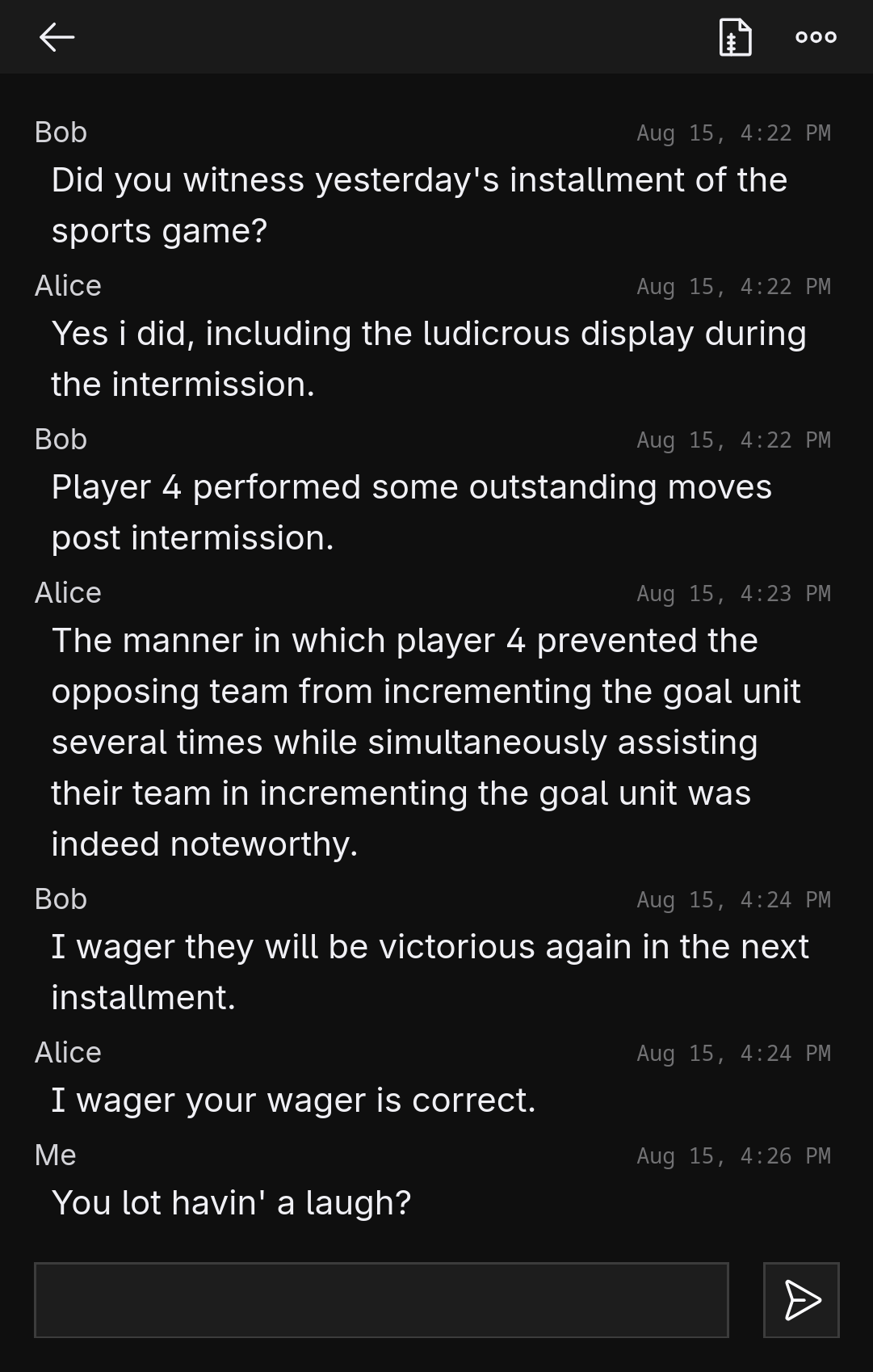Use cases
WireTile is suitable for:
-
Messaging individuals and small groups.
Peers exchange contact codes to begin messaging each other, which is analogous to exchanging phone numbers.
-
Transferring files.
Peer-to-peer communication allows efficiently transferring files of arbitrary size. Whereas centralized platforms must
often impose low limits such as 10 MB.
WireTile is not:
-
A distributed hash table or mesh network router.
Peers simply communicate with a list of known peers which are manually added by the user (via exchanging contact codes).
There is no peer discovery or relaying messages for other/unknown peers.
-
A community hub.
Large communities benefit from a hierarchy of roles/power, which is a poor fit for a peer-to-peer model. Instead consider
Matrix for this use case.
-
Social media.
Operating Systems
WireTile consists of two major parts: a web app and a server (both are in the binary).
The web app requires a modern web browser, and is tested on Firefox and Chromium-based. Multiple modern web browsers are
available on all major operating systems.
The server requires Linux x64/arm64.
Encryption
All communication over the network is encrypted and verified using various cryptographic standards.
Server peer-to-peer communication utilizes: ED25519 to verify authenticity of peers, AES256-GCM to encrypt data payloads,
HMAC-SHA256 to verify integrity & authenticity of payloads, and ML-KEM1024 to establish shared secrets between peers.
Web app communication to/from the server is encrypted via HTTPS-TLS1.3.
How do i login/signup or create an account?
There are no login/signup buttons, instead each user runs their own self-hosted server and uses a web app served by their
server. Each server belongs to one user, so you could think of that as the "account".
DNS & domain names
WireTile is designed to operate without the Domain Name System (DNS). Owning a domain name is not required.
